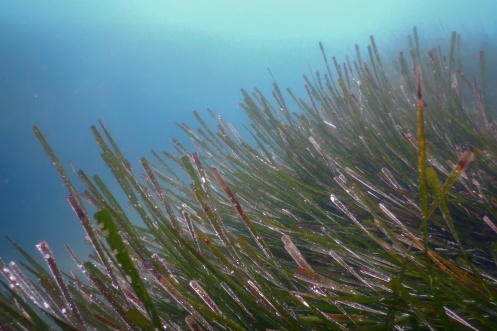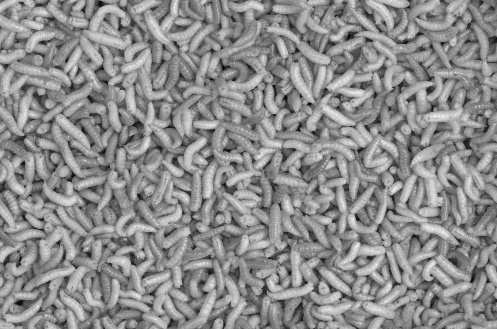 The last licks of orange glow on the horizon signaled nature’s transition from day to night. Sitting on a deserted beach, on an isolated key, deep in the Everglades National Park backcountry, I watched the heavens as the stars began to appear one-by-one. Eyes darting frantically, I tried to count each star as it appeared. When stars began to emerge by the hundreds, I was quickly overwhelmed. Closing my eyes, I lay slowly on my back. After a brief visual break, I opened my eyes and tried to absorb the vastness from horizon to horizon. Usually, what floods my mind in these contemplative situations are big thoughts about my place in the world or reflections on how insignificant our tiny planet is in the cosmic scheme of things. But, what dominated my current introspection were not wispy glimpses of answers to life’s eternal questions, but clear visions of camping with my father.
The last licks of orange glow on the horizon signaled nature’s transition from day to night. Sitting on a deserted beach, on an isolated key, deep in the Everglades National Park backcountry, I watched the heavens as the stars began to appear one-by-one. Eyes darting frantically, I tried to count each star as it appeared. When stars began to emerge by the hundreds, I was quickly overwhelmed. Closing my eyes, I lay slowly on my back. After a brief visual break, I opened my eyes and tried to absorb the vastness from horizon to horizon. Usually, what floods my mind in these contemplative situations are big thoughts about my place in the world or reflections on how insignificant our tiny planet is in the cosmic scheme of things. But, what dominated my current introspection were not wispy glimpses of answers to life’s eternal questions, but clear visions of camping with my father.
Like so many young families in the early 1960s, mine had started camping as an inexpensive vacation-my mom and dad encouraged and outfitted by dad’s already camping co-workers. At one and a half years old, I was dragged along for all the fun. As the story goes, the first trip was a miraculous success-though it rained most of the two weeks and I’m told I spent most of my time in the tent in a highchair. It couldn’t have been all that bad; the Koelsch’s began a yearly ritual akin to migration that brought us to that same Lake George, New York campground each summer for nearly ten years. There
I caught my first fish (a “sunny” on a bamboo pole that we cooked in a metal Band-Aid box), paddled my first canoe (a beater of a Grumman the livery guy tried to blame dad for denting), and went on my first hike (a ranger-led scramble to the precipice of Roger’s Rock). Lake George was full of memories of the beginning of my love affair with the outdoors.
But, this evening, lying back on the sand on Pavilion Key, relaxing from a day’s kayaking, I recalled a very specific camping image of my father. Mind you, it was family-style tent camping we did at Lake George-three burner Coleman stove, big coolers, cotton sleeping bags with animal print interiors, mattresses that took half an hour to blow up, and a canvas tent that took an hour to erect once you figured out which pole went where. The drive-in campsite had the typical “Fred loves Wendy”-carved picnic table and slightly crooked grill-covered stone fireplace. It’s really just the fireplace that is important to this memory. That’s where dad would sit in a lounge chair and tend the campfire after his family was safely tucked in the tent. Several hours later I would half-hear that familiar tent zipper sound and dad would crawl in next to mom. Always being the curious type, the following morning I would ask dad what he did after we all went to bed. “Trying to count the stars,” he would say.
Dad’s sitting out at night wasn’t just an occasional occurrence. It was something he would do almost every night they weren’t playing cards or socializing with other campground acquaintances. And, each morning, following my question, he would answer with the same, what some people would describe as child-like, enthusiasm: “Trying to count the stars.” Sometimes he would tell me how many he counted that evening-but, the number never really seemed to matter as much as the actual counting. The quest was not for ever truly quantifying the heavens, the quest was the unrestrained joy he found in the trying. It was his continual enthusiasm and sense of wonder that
drenched my brain on that clear night in the Everglades. And, at that moment in my memory, I felt closer to my father than I would have if he were sitting on the beach next to me.
 Beyond our Lake George days, we spent outdoor time together through our participation in the YMCA Indian Guides program. Each of the father-son “journeys” we shared was permeated by dad’s National Geographic Magazine sense of adventure. He skillfully applied his excitement and fed my imagination in ways that made each trip even more rewarding. There was the father-son canoe trip on the Wading River in New Jersey’s Pine Barrens-where an hour of no contact with other canoes and a small “search” plane overhead added a certain “edge” to our trip. And, there was that frigid winter night hike in the Poconos that revealed several well-formed bear prints in the snow’s icy crust. We had photos from some of those trips in a box somewhere, but lying there looking at the night sky I realized that the memories and feelings I cherished the most were not captured on film. They were captured in my heart and reflected in the stars.
Beyond our Lake George days, we spent outdoor time together through our participation in the YMCA Indian Guides program. Each of the father-son “journeys” we shared was permeated by dad’s National Geographic Magazine sense of adventure. He skillfully applied his excitement and fed my imagination in ways that made each trip even more rewarding. There was the father-son canoe trip on the Wading River in New Jersey’s Pine Barrens-where an hour of no contact with other canoes and a small “search” plane overhead added a certain “edge” to our trip. And, there was that frigid winter night hike in the Poconos that revealed several well-formed bear prints in the snow’s icy crust. We had photos from some of those trips in a box somewhere, but lying there looking at the night sky I realized that the memories and feelings I cherished the most were not captured on film. They were captured in my heart and reflected in the stars.
Those stars brought me a real gift that evening-a renewed closeness to my father and an understanding of why I could love the outdoors so much. Still lying on the beach, I broke into a appreciative smile and again began to count.
NOTE: this essay originally appeared in Canoe & Kayak Magazine.
Posted in Environmental Issues, Uncategorized, writing
Tags: 2019, Camping, Counting Stars, Dad, Dare Greatly, Dream Big, Dreamer, Environment, essay, Everglades, Everglades National Park, Fathers, Fathers Day, Hero, Indian Guides, inspiration, kayaking, Wilderness Waterway, writing, YMCA
 Gliding, glassy water
Gliding, glassy water


 the bright sunlight, the boat, the ripples, the reflection, caught the attention of its five-year old owner. Owen reacted, leapt, and hit the water like a monofilament-crippled pelican. He hadn’t learned to swim yet, and he never would.
the bright sunlight, the boat, the ripples, the reflection, caught the attention of its five-year old owner. Owen reacted, leapt, and hit the water like a monofilament-crippled pelican. He hadn’t learned to swim yet, and he never would. Hundreds of meat-eating maggots writhed en masse at the bottom of my garbage can. The movement was revolting and mesmerizing. The putrid reek of decay burned the back of my throat. The stench was repulsive and intoxicating. My head swooned from the overstimulation.
Hundreds of meat-eating maggots writhed en masse at the bottom of my garbage can. The movement was revolting and mesmerizing. The putrid reek of decay burned the back of my throat. The stench was repulsive and intoxicating. My head swooned from the overstimulation. On July 1, 2019–only days away–Japan will once again start blatant
On July 1, 2019–only days away–Japan will once again start blatant 
 My hope with Delphys Rising (in addition to people just enjoying a good story) is to raise a little awareness about Japan’s return to commercial whaling–as well as the continued slaughter through drive hunts, hunting of large whales by companies in Norway and Iceland and the capture of live dolphins for display or animal shows.
My hope with Delphys Rising (in addition to people just enjoying a good story) is to raise a little awareness about Japan’s return to commercial whaling–as well as the continued slaughter through drive hunts, hunting of large whales by companies in Norway and Iceland and the capture of live dolphins for display or animal shows. The last licks of orange glow on the horizon signaled nature’s transition from day to night. Sitting on a deserted beach, on an isolated key, deep in the Everglades National Park backcountry, I watched the heavens as the stars began to appear one-by-one. Eyes darting frantically, I tried to count each star as it appeared. When stars began to emerge by the hundreds, I was quickly overwhelmed. Closing my eyes, I lay slowly on my back. After a brief visual break, I opened my eyes and tried to absorb the vastness from horizon to horizon. Usually, what floods my mind in these contemplative situations are big thoughts about my place in the world or reflections on how insignificant our tiny planet is in the cosmic scheme of things. But, what dominated my current introspection were not wispy glimpses of answers to life’s eternal questions, but clear visions of camping with my father.
The last licks of orange glow on the horizon signaled nature’s transition from day to night. Sitting on a deserted beach, on an isolated key, deep in the Everglades National Park backcountry, I watched the heavens as the stars began to appear one-by-one. Eyes darting frantically, I tried to count each star as it appeared. When stars began to emerge by the hundreds, I was quickly overwhelmed. Closing my eyes, I lay slowly on my back. After a brief visual break, I opened my eyes and tried to absorb the vastness from horizon to horizon. Usually, what floods my mind in these contemplative situations are big thoughts about my place in the world or reflections on how insignificant our tiny planet is in the cosmic scheme of things. But, what dominated my current introspection were not wispy glimpses of answers to life’s eternal questions, but clear visions of camping with my father. Beyond our Lake George days, we spent outdoor time together through our participation in the YMCA Indian Guides program. Each of the father-son “journeys” we shared was permeated by dad’s National Geographic Magazine sense of adventure. He skillfully applied his excitement and fed my imagination in ways that made each trip even more rewarding. There was the father-son canoe trip on the Wading River in New Jersey’s Pine Barrens-where an hour of no contact with other canoes and a small “search” plane overhead added a certain “edge” to our trip. And, there was that frigid winter night hike in the Poconos that revealed several well-formed bear prints in the snow’s icy crust. We had photos from some of those trips in a box somewhere, but lying there looking at the night sky I realized that the memories and feelings I cherished the most were not captured on film. They were captured in my heart and reflected in the stars.
Beyond our Lake George days, we spent outdoor time together through our participation in the YMCA Indian Guides program. Each of the father-son “journeys” we shared was permeated by dad’s National Geographic Magazine sense of adventure. He skillfully applied his excitement and fed my imagination in ways that made each trip even more rewarding. There was the father-son canoe trip on the Wading River in New Jersey’s Pine Barrens-where an hour of no contact with other canoes and a small “search” plane overhead added a certain “edge” to our trip. And, there was that frigid winter night hike in the Poconos that revealed several well-formed bear prints in the snow’s icy crust. We had photos from some of those trips in a box somewhere, but lying there looking at the night sky I realized that the memories and feelings I cherished the most were not captured on film. They were captured in my heart and reflected in the stars. I was excited to receive a positive nod for my newest novel,
I was excited to receive a positive nod for my newest novel,  I’m excited by the recent editorial review of DELPHYS RISING posted by
I’m excited by the recent editorial review of DELPHYS RISING posted by  When Erik’s eyes finally adjusted to the bright spotlights shining into the sinkhole and at the cube, he could see that the FBI agents had drawn their weapons. He slowly raised his hands and shouted, “I have ID.”
When Erik’s eyes finally adjusted to the bright spotlights shining into the sinkhole and at the cube, he could see that the FBI agents had drawn their weapons. He slowly raised his hands and shouted, “I have ID.” It seemed like forever. It seemed instantaneous. Stretched to the horizon before him stood thousands of silver beings–human, but silver. Naked. He looked at himself–ending at his feet. Also naked, also silver. It was most definitely his body–except for the color.
It seemed like forever. It seemed instantaneous. Stretched to the horizon before him stood thousands of silver beings–human, but silver. Naked. He looked at himself–ending at his feet. Also naked, also silver. It was most definitely his body–except for the color.
 It wasn’t the orders that roused him from his hotel bed. It was what played repetitively through his mind. It was an image–the gleaming, stainless steel monolith surrounded by skeletons. It was how his eyes were drawn past the bleached bones and into the cube.
It wasn’t the orders that roused him from his hotel bed. It was what played repetitively through his mind. It was an image–the gleaming, stainless steel monolith surrounded by skeletons. It was how his eyes were drawn past the bleached bones and into the cube. Deliberately placing his feet as he skirted the hole for a better look, Erik jerked to a stop when he could make out the brightly lit object. It was a stainless steel cube–approximately ten feet by ten feet by ten feet. Surrounding it were at least a dozen bleached, human skeletons laying prostrate before the monolith.
Deliberately placing his feet as he skirted the hole for a better look, Erik jerked to a stop when he could make out the brightly lit object. It was a stainless steel cube–approximately ten feet by ten feet by ten feet. Surrounding it were at least a dozen bleached, human skeletons laying prostrate before the monolith.